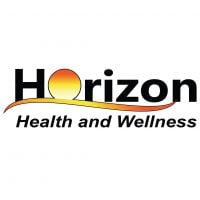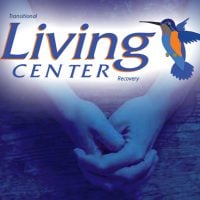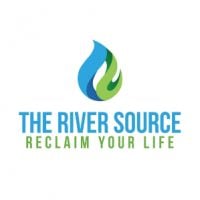
Arizona Mentor - Racine
Drug Rehab Center in Casa Grande, Arizona
- Mental Health
Arizona Mentor provides mental health services and addiction treatment with experienced clinicians and evidence-based approaches for individualized care and positive change, offering inpatient treatment and accepting private health insurance.
About Arizona Mentor - Racine in Arizona
Arizona Mentor in Casa Grande, AZ provides mental health services for a variety of mental health issues and addictions. Their experienced team of clinicians, psychiatrists, and certified counselors provide individualized care to meet each person's unique needs. They offer multiple levels of care, including inpatient treatment, to provide the best possible outcome for their clients. Their treatment programs utilize evidence based approaches such as experiential therapy, group therapy, individual therapy, nutrition therapy, and cognitive behavioral treatment (CBT), to help individuals address their mental health issues and create positive, lasting change in their lives.
Arizona Mentor's commitment to excellence is evident in their facilities and services. Their highly trained staff create a safe and comfortable environment, utilizing the most up-to-date and proven methods to help individuals reach their goals. They accept private health insurance, providing a cost-effective option for those looking for mental health treatment. They are affiliated with Arizona Mentor, an organization dedicated to providing quality mental health and addiction treatment for those in need.
Genders
Ages
Modality
Additional
Conditions and Issues Treated
Levels of Care Offered
This center offers a variety of custom treatment tailored to individual recovery. Currently available are Inpatient, with additional therapies available as listed below.
Inpatient treatment is a form of recovery used in drug rehab. Inpatient recovery offers individual therapy, groups, and family therapy to ensure that the addict has the best recovery possible. A variety of treatments are provided in this type of recovery, depending on what treatment the addict needs at that particular time.
The length of inpatient addiction treatment depends on the addict and their addiction. Inpatient rehabilitation can last anywhere from 30 days to 90 days, depending on how severe the drug abuse is. Inpatient rehab is a costly drug treatment, costing anywhere from $30k- to $60k. However, insurance often offers help in covering these costs.
Therapies & Programs
Different people react differently to various treatment options. Some drug rehabilitation centers offer individualized treatment that caters to the specific needs of a drug addict. The best treatment option varies on an individual depending on the type of drug abused, life history, medical condition of the person, social circumstances, and the environment they live in now.
When a person enters drug rehab, they usually have anti-drug associations such as withdrawal symptoms, stress, cravings, etc. The first step of drug rehab is to detoxify the body from any residual substances in it. Drug rehabilitation centers usually employ trained medical professionals to help in this process. Usually, the initial detoxification lasts for five days, where the person is monitored under close supervision.
Attending group therapy at Arizona Mentor - Racine in , is a useful way for those seeking sobriety to realize they aren’t the only one going through it.
This is when a group of people on different recovery phases get together and talk about what they’re going through, their triggers, successes, and failures. This can include alternative types of therapies too! Group therapy may occur on an outpatient or inpatient basis with groups that have no pre-existing relationships outside the session, unlike support groups where everyone already knows each other beforehand.
Cognitive Behavioral Therapy is a type of psychotherapy that helps people address the thoughts and behaviors that may have led to their addiction. It also helps change negative thoughts into positive ones and promotes healthy communication between addicts and those around them. CBT is an efficient treatment for individuals suffering from all sorts of addictions.
Cognitive Behavioral Therapy (CBT) focuses on the underlying thoughts and behaviors that caused the problem of addiction in the first place and may cause a relapse. Negative feelings are common in drug abuse disorders, but they can lead to co-occurring disorders if not recognized. CBT involves strategies that help to change the behavior pattern by restructuring negative thoughts into positive ones. It helps to remove these feelings, and it provides long-term benefits. Also, CBT promotes self-awareness, self-control and can be administered as a mono-therapy or as part of combination therapy.
Good nutrition can be difficult for people recovering from addiction because they may not feel like eating while they are experiencing the physical and emotional side effects of detoxing.
Nutrition therapy can help addicts in the following ways:
- Helps individuals to understand which foods promote good health and support recovery that will assist them during detox
- Provides guidance and education about how to maintain a nutritious diet so they can stay healthy during recovery
- Improves their overall health and well-being, which can reduce the severity of substance withdrawal symptoms.
Nicotine replacement therapy is a popular method of treatment that helps individuals overcome their addiction to cigarettes by providing them with safer alternatives. Nicotine replacement options can include:
- Inhalers
- Gum
- Patches
These treatments are often used in combination with other therapies, such as cognitive behavioral therapy or motivational interviewing, to help individuals more easily transition into a smoking-free lifestyle.
Patient Experience
Experiential Therapy at Arizona Mentor - Racine
Experiential therapy is a type of therapeutic approach that focuses on having patients work through problems, issues, or emotions by engaging directly in some real experience. It occurs face-to-face with a therapist who helps these people to explore their feelings first hand. The hope is that when this happens, the patient will feel driven to turn away from their destructive behavior and instead take up positive behaviors or coping mechanisms. Direct experience methods, role play, psychodrama, interpersonal and social learning are a few different forms of experiential therapy.
Payment Options Accepted
For specific insurance or payment methods please contact us.
Is your insurance accepted?
Ask an expert, call (888) 674-0062
Arizona Mentor Associated Centers
Discover treatment facilities under the same provider.
- Arizona Mentor - Cactus in Phoenix, AZ
- Arizona Mentor - Echo in Glendale, AZ
- Arizona Mentor - Cambridge in Phoenix, AZ
- Arizona Mentor - Curry in Chandler, AZ
- Arizona Mentor - Jasmine in Peoria, AZ
Learn More About Arizona Mentor Centers
Additional Details
Specifics, location, and helpful extra information.
Casa Grande, Arizona 85122 Phone Number(602) 200-9494 Meta DetailsUpdated November 25, 2023
Staff Verified
Arizona Mentor - Racine Patient Reviews
There are no reviews yet. Be the first one to write one.
Casa Grande, Arizona Addiction Information
Arizona has some of the highest rates of prescription drug abuse in the United States. Methamphetamines, heroin and morphine are among the most commonly abused substances. Prescription pain relievers were prescribed to 348 million people in 2012, enough to medicate every adult in Arizona for 2 full weeks. The number of people with substance use disorders in Arizona has remained relatively constant over the past few years.
9,000 people in Casa Grande struggle with drug addiction. Heroin was involved in more than one-third of all overdose deaths in 2016. This can be attributed to the availability of drugs in the area. Cocaine was involved in about one-fifth of all overdose deaths in 2016. Some of the most popular drug treatment options in Casa Grande, Arizona, include 12-step programs, cognitive-behavioral therapy, and medication-assisted treatment.
Treatment in Nearby Cities
- Mohave Valley, AZ (214.4 mi.)
- Mesa, AZ (35.5 mi.)
- Cave Creek, AZ (65.1 mi.)
- San Luis, AZ (178.1 mi.)
- Wickenburg, AZ (92.4 mi.)
Centers near Arizona Mentor - Racine



The facility name, logo and brand are the property and registered trademarks of Arizona Mentor - Racine, and are being used for identification and informational purposes only. Use of these names, logos and brands shall not imply endorsement. RehabNow.org is not affiliated with or sponsored by Arizona Mentor - Racine.



